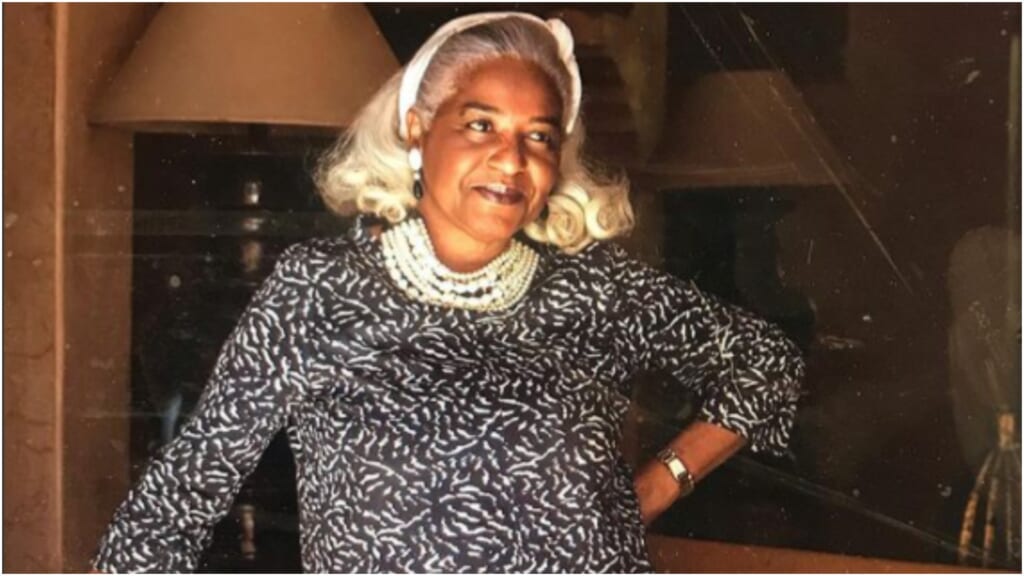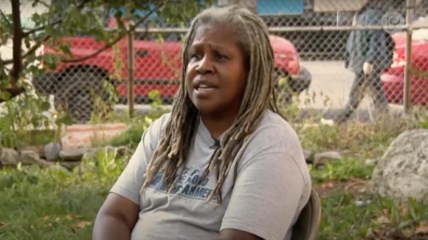Morocco’s only Black woman hotelier offers paradise vacation for travelers
"When I first came here to the Palmeraie, there was nothing but palm trees as far as the eye could see," said Meryanne Loum-Martin.
Meryanne Loum-Martin is Morocco’s sole Black female hotelier and her boutique hideaway has become a must-see destination for celebrities, artists and travelers for more than two decades.
“Thirty years ago, I would have never thought that I would end up as an innkeeper,” Loum-Martin said in a recent interview with Travel and Leisure. “My friend used to say, ‘So, you left being a Parisian lawyer to be an innkeeper.’”

Her “inn,” Jnane Tamsna, is located in Marrakech, Morocco, and boasts 24 colorful rooms, five heated swimming pools, a library with hundreds of books and magazines; and nine acres of gardens filled with date palms, olive trees and organic fruits and vegetables.
“When I first came here to the Palmeraie, there was nothing but palm trees as far as the eye could see,” said Loum-Martin, who was born in Côte d’Ivoire to a Senegalese father and West Indian mother.
“I grew up in big cities. I didn’t come abroad to live in another big city,” she explained. “I wanted a garden. I wanted a garden before I even met a botanist,” she said in a June 2021 interview about her husband, American ethnobotanist Dr. Gary Martin, founder of the Global Diversity Foundation.
The couple reportedly lives on the grounds of Jnane Tasmna, where not one room in the hotel is the same. Celebrities including Tom Cruise, Yvonne Orji and Melina Matsoukas have visited Loum-Martin’s intimate oasis in the desert, per the report.
“There are places that are 10 times more luxurious than ours, but that doesn’t necessarily mean they have soul,” Loum-Martin said. “When you come to Jnane Tamsna, you stay at the Martins.’ There isn’t going to be a new manager in three years. This is our home.”
Loum-Martin purchased the land the property sits on in 1985 when she visited Marrakech to search for an ideal locale for her parents to build a vacation home.
“Thirty-five years ago, it was all alfalfa fields and palm trees. Camels, donkeys, sheep. It looked biblical,” she recalled in an interview with Fodor. “If there had been a big river, you would have expected to see Moses floating by in a basket.”
The city is currently quiet amid the global COVID-19 pandemic.
“It’s a comfort to begin seeing so many familiar faces again,” said Loum-Martin to Travel and Leisure magazine.
“A lot of people don’t want to live away from home and they have a stronger sense of belonging to a place than I did,” she said. “I had such a cosmopolitan and nomadic life. I feel at home everywhere. I don’t feel at all obliged or bound to be anywhere.”
She continued, “I chose Marrakech out of freedom. I wasn’t obliged to be in France. I wasn’t obliged to be in Senegal. Most people don’t have this freedom.”
Loum-Martin’s mother was a lawyer mother, and she herself worked as an attorney when she first traveled to Marrakesh in the late 80s.
“I was a lawyer, but my heart was never in it. I loved architecture and I knew how to throw great parties” she said. “I never dreamt this path for myself.”
“After slavery was abolished, around 1870, the grandfather of my grandmother was freed at the age of 16. Instead of leaving the plantation and heading into the city, he remained and worked for pay as a farmer.”
He ultimately purchased the plantation from his former slave master.
“I am extremely influenced by his life,” she said.
Have you subscribed to theGrio podcasts “Dear Culture” or “Acting Up?” Download our newest episodes now!
TheGrio is now on Apple TV, Amazon Fire and Roku. Download theGrio.com today!
More About:Lifestyle











